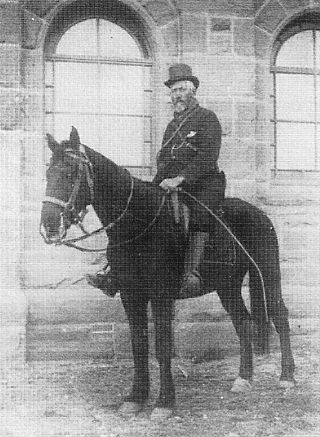
Christoffel Cornelis Froneman, commonly known as Stoffel Froneman, was veldkornet, general and Vice-Commander-in-Chief of the Orange Free State Boer forces during the Anglo-Boer War of 1899-1902.
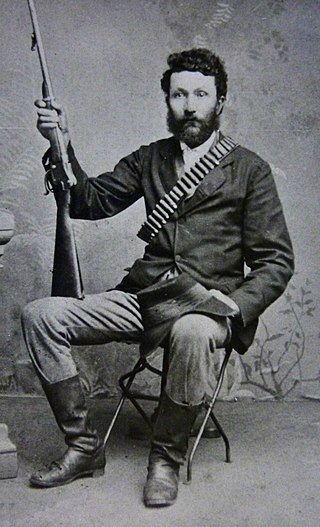
Stephanus Petrus Erasmus Trichard was a field cornet and Commander for the South African Republic in the First and Second Boer War.
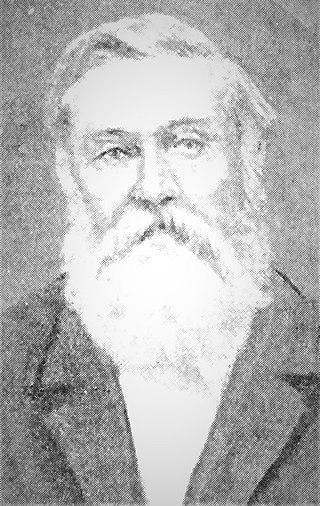
Marthinus Prinsloo was an Orange Free State Boer farmer, politician and general in the Second Boer War (1899-1902). He was born of Nicolaas Frans Prinsloo and Isabella Johanna Petronella Rautenbach in the district of Graaff-Reinet, South Africa who migrated to the Orange Free State where they lived in Bloemfontein, Waterval and Bethlehem. Marthinus Prinsloo was the eldest brother of Orange Free State assistant chief commander Antonie Michael Prinsloo.
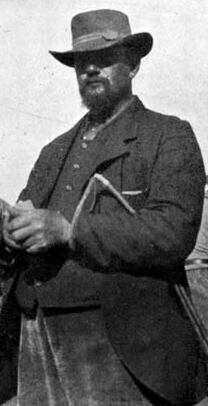
Pieter Daniël de Wet was a Boer general in the Anglo-Boer War (1899–1902) and a younger brother of Boer general and politician Christiaan de Wet. Piet de Wet participated in the Battle of Poplar Grove, the Battle of Sanna's Post for the waterworks there, and defeated the 13th Battalion Imperial Yeomanry at Lindley. In July 1900, he surrendered to the British at Kroonstad, Orange Free State. He became a prominent member of the National Scouts helping the British in the last years of the Boer War.

Christiaan Botha was a younger brother of Louis Botha (1862–1919) and Philip Botha (1851-1901), but an older brother of Theunis Jacobus Botha (1867-1930), and likewise a Boer general in the Second Boer War (1899–1902) who then both fought the British to the end.
Johannes Gerhardus Celliers was a Boer general in the Anglo-Boer War (1899-1902) in South Africa.

Jonathan Crowther was a Boer war general.
Petrus "Piet" Johannes Fourie was a Boer general for the Orange Free State in the Anglo-Boer War (1899–1902) in South Africa. He should not be confused with his Boer colleagues generals Joachim Christoffel Fourie (1845–1900) and Christiaan Ernst Fourie (1858–1943).
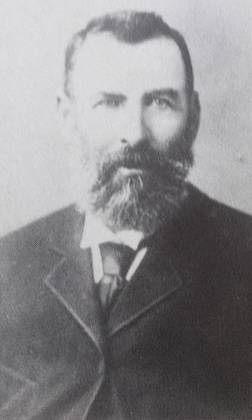
Ignatius "(Oom) Naas" Stephanus Ferreira was an Orange Free State Boer war general and Commander-in-Chief, who was fatally shot at the Battle of Paardeberg. Naas Ferreira should not be confused with his son and namesake Ignatius "Natie" Stephanus Ferreira, the gold miner Ignatius Philip Ferreira, and Boer general J. (Joachim) Ferreira.

Christiaan "Chrisjan" Ernst Fourie was an Anglo-Boer War commander of the Middelburg and Johannesburg Commandos and later a combat general for the South African Republic. He should not be confused with his colleagues, the Boer generals Joachim Christoffel Fourie (1845-1900) and Petrus "Piet" Johannes Fourie (1842-1916).

Sarel Petrus du Toit was a Second Boer War Boer general for the South African Republic. In 1896 he was elected representative to the Eerste Volksraad in Pretoria for the district of Wolmaransstad.
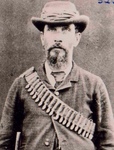
Andries Petrus Johannes Cronjé was a Second Boer War general, like his older brother Piet Cronjé. After surrendering to the British he became a prominent member of the National Scouts Corps, who assisted the British military against the remaining Boer guerrillas in the last years of the Boer War. A.P.J. Cronjé should not be confused with Boer general Andries Petrus Cronjé, who was captured and sent to Bermuda by the British.

Daniel Jacobus Elardus Erasmus was a Boer general during the Anglo Boer War (1899–1902).

Johan Hendrik Breytenbach was the official South African state historian for the Second Boer War. He was employed by the National Archives in Pretoria and studied the Second Boer War since 1940. In 1959 the Minister of Education, Arts and Science appointed Breytenbach state historian for the Second Boer War, supervised by the Department of History of the University of Pretoria. When Breytenbach died in 1994, he had published five volumes of his Die Geskiedenis van die Tweede Vryheidsoorlog in Suid-Afrika, 1899–1902 between 1969 and 1983, with two further volumes at the planning stage. Using Breytenbach's notes, the State Archives finalised and published Volume 6 posthumously in 1996, concluding with a treatment of the Battle of Bergendal. Apart from this major work Breytenbach published many books and articles on South African history.
Ferdinandus Jacobus Potgieter was a Boer general in the Second Boer War (1899–1902).
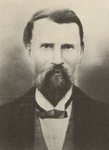
Frederik Jacobus Potgieter was a Boer commander in the Second Boer War. He is also referred to as Frederik Johannes Potgieter.

Tobias Smuts was a Second Boer War Boer general and member of the Eerste Volksraad for the South African Republic.
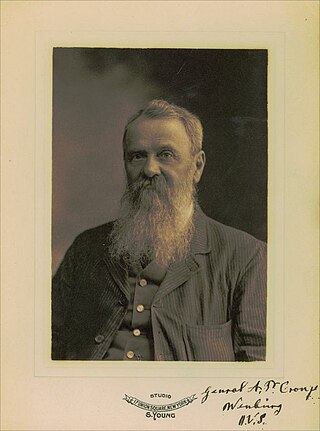
Andries Petrus Cronjé was a Second Boer War Boer general and a member of the Orange Free State Volksraad and the Orange River Colony parliament. He should not be confused with Boer general Andries Petrus Johannes Cronjé, who surrendered and cooperated with the British in the National Scouts.
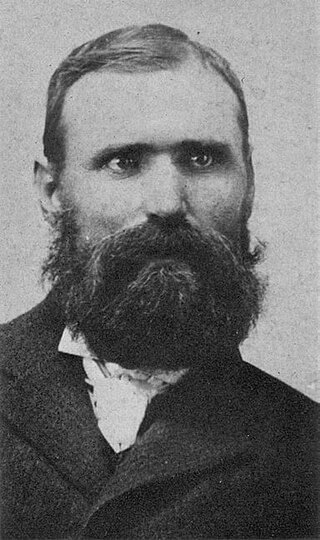
Hendrik Frederik Prinsloo was a Second Boer War commander of the Carolina Commando for the South African Republic who fought and prevailed at the Battle of Spion Kop. His son and namesake Hendrik Frederik Prinsloo (1890–1966) served as an officer in the South African Army in both World War I and World War II.

The Battle of Veertien Strome was a military engagement in the Second Boer War fought near Warrenton, Northern Cape, by Boer troops under Sarel du Toit and British troops under Paul Methuen. Du Toit failed to prevent the British from crossing the Vaal River and entering the South African Republic from the southwest. This British move would be part of Methuen's clearing of the Orange Free State, within the overall military advance on Pretoria.



















